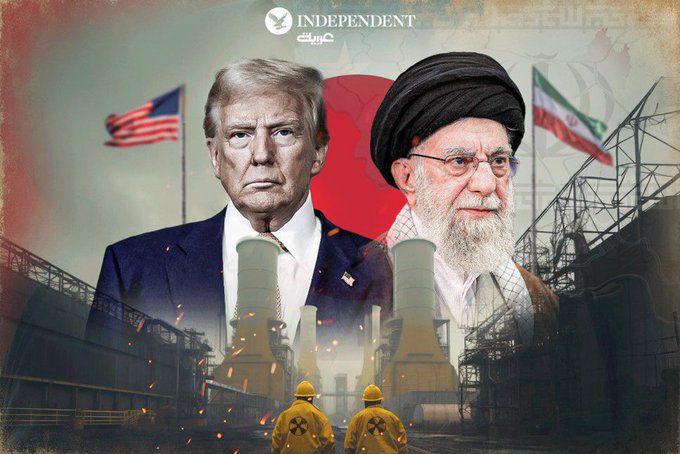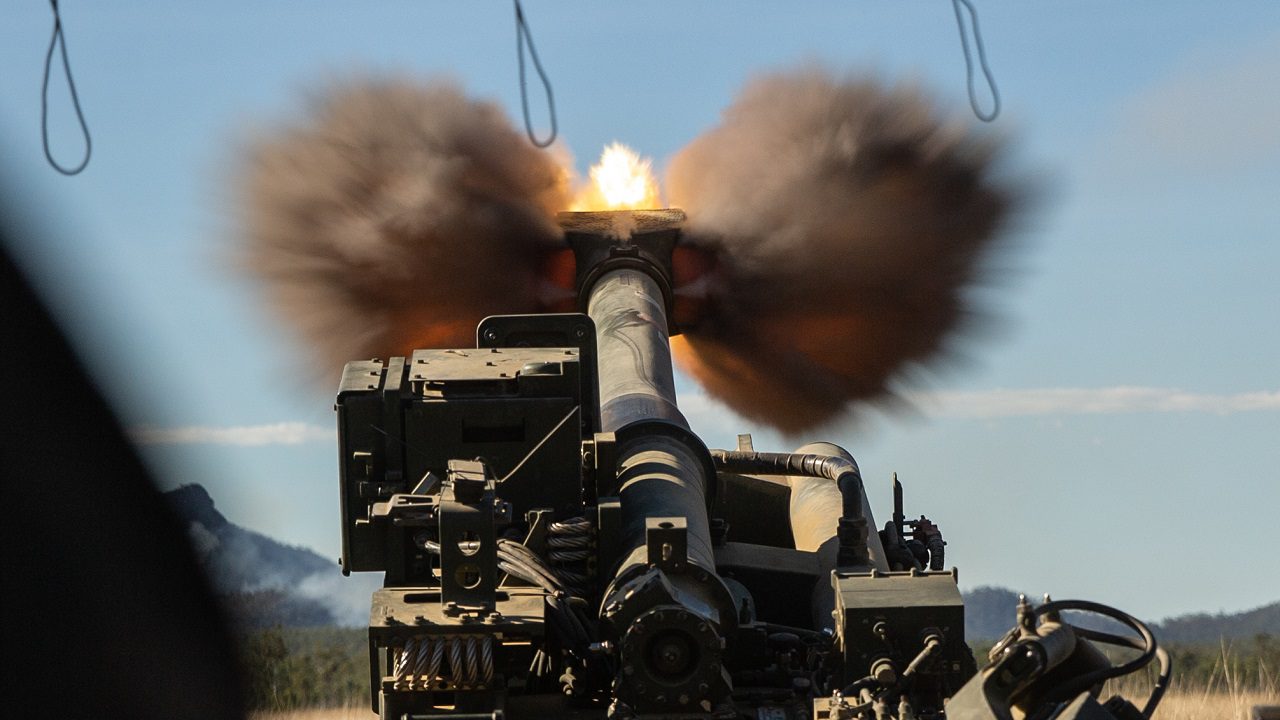By David Wurmser[1]
[1] David Wurmser, Ph.D. is a senior fellow at the Center for Security Policy in Washington and at the Misgav Institute for Zionist Strategy and at the Jerusalem Center for Foreign and Security Affairs in Israel. He was former senior advisor to Vice President Cheney and to NSC Advisor Ambassador John Bolton.
The desolation wrought on Hizballah by Israel, and the humiliation inflicted on Iran, has left the Iranian axis exposed to Israeli power and further withering. It has also altered the strategic tectonics of the Middle East. The story is not just Iran anymore. The region is showing the first signs of tremendous geopolitical change. And the pieces on the board are beginning to move.
First things first. The removal of the religious-totalitarian tyranny of the Iranian regime remains still the greatest strategic imperative in the region for both United States and its allies, foremost among whom stands Israel. In its last days, it is lurching toward a nuclear breakout to save itself, which would not only leave one of the most destructive weapons in one of the most dangerous regimes in the world – as President Bush had warned against in 2002 – but in the hands of one of the most desperate ones. This is a prescription for catastrophe. Because of that, and because one should never turn one’s back on a cobra, even a wounded one, it is a sine qua non that Iran and its castrati allies in Lebanon be defeated.
However, as Iran’s regime descends into the graveyard of history, it is important not to neglect the emergence of other new threats. Indeed, not only are those threats surfacing and becoming visible, but the United States and its allies already need, urgently in fact, to start assessing and navigating the new reality taking shape.
The rise of these new threats, which are slowly reaching not only a visible, but acute phase increases the urgency of dispensing with the Iranian threat expeditiously. Neither the United States nor our allies in the region any longer have the luxury of a slow containment and delaying strategy in Iran. Instead, it is necessary to move toward decisive victory in the twilight struggle with the Ayatollahs.
Specifically, the upheaval surrounding the retreat of the Syrian Assad regime from Aleppo in the face of Turkish-backed, partly Islamist rebels made from remnants of ISIS, are the first skirmishes in this new strategic reality. Aleppo is falling to the Hayat Tahrir ash-Sham (HTS) – a descendent of the Nusra force led by Abu Muhammed al-Julani, himself a graduate of the al-Qaida system and cobbled together of ISIS elements. Behind this force is the power of nearby Turkey, who used the US withdrawal from northern Iraq a few years ago to release Islamists captured by the US and the Kurds. Some of these former prisoners were sent to Libya to fight the pro-Egyptian Libyan National Army under General Khalifa Belqasim Haftar based in Tobruk, and the rest were reorganized in Islamist militias oriented toward Ankara. The rise of a Muslim-Brotherhood dominated by Turkey, rehabilitating and tapping ISIS residue to ride Iran’s decline/demise to great strategic advantage will plague us going forward.
Added to this is Hamas’ destruction – also a critical goal for Israel and the United States but one that also involves consequences that must be navigated and hopefully countered. The world of Hamas is a schizophrenic world. It has two heads, aligned with different internal fractions – one more anchored to the world of Sunni, Muslim Brotherhood politics led by Turkey and the other to the Iranian axis. In 2012 Israel killed Ahmad al-Jabri, a scion of the powerful al-Jabari clan lording over Hebron but who had transplanted westward to become the leader of the Murabitun forces (part of the Izz ad-Din al-Qasem Brigades) within Hamas in Gaza. He had transported those forces to train under the IRGC in Mashhad Iran in the years before and became the driving force of Hamas by the time Israel felt it had to deal with him. Despite his demise, the structures he led anchored to Iran continued to grow and assume ever more dominance over Hamas, in part because of the release of several key figures in the Gilad Shalit hostage-release deal (2011), including Yahya Sinwar. But Iran did not cleanly control all of Hamas. Turkey maintained a powerful presence in the organization and had some senior leaders likely more loyal to itself than to Iran. In many ways, Hamas reflected the schizophrenia of its patron – Qatar – who served a critical ally to both Iran and Turkey in the last two decades.
In the last two decades, however, Iran proved more ascendent strategically in the region than Turkey. In fits and starts, Ankara had tried to quietly compete with Iran in the last two decades, but more often than not left to only nibble at the scraps left by Iran along the edges, whether in Syria, Iraq, Lebanon (after the August 2021 port explosion, for example) or among the two structures of geopolitical discourse, the “Lingua Franca” embodiments of regional competition — the Palestinians and the Islamists. Hamas, therefore, as well as the Palestinian Islamic Jihad (an organization whose fealty was far more homogenously held toward Iran), became increasingly defined – indeed, far, far more — by Tehran than Ankara. Iran had become the region’s new Nasser, and its minions accordingly flourished as did its factions in Palestinian and Islamist politics.
However, suddenly the ground shifted. Israel has since summer, starting with Operation Grim Beeper and the demolition of Hizballah, triggered an earthquake in what is normally a glacial pace of regional strategic change. If Israel presses onward with priority as it should to devastate and destabilize the Iranian regime, and the Iranian axis meets it demise, then Hamas – indeed all Palestinian and Islamist politics – drifts to a Turkish direction and slowly emerge as Ankara’s strategic assets. This reorientation does not represent an increase in the Palestinian threat to Israel, but it would be the triumph of hope over experience to think it would reduce it. Indeed, it is likely no more than an exchange of a rabid donkey for a crazed mule. For the moment, Qatar – being much as the Palestinian and Islamist clusters they fund — rides both animals.
The emergence of the Sunni, Muslim Brotherhood bloc, which includes Turkey’s slow drift of to a dangerous position, as a strategic problem began with President Obama. Although Tayyip Erdogan always was an Islamist politician, his attempts to recreate some sort of neo-Ottoman Caliphate and reignite its imperialist ambitions were disconcerting but largely resulted in rhetoric and symbolism rather than reality. It was, however, latently concerning because the reference point on which he focused of resurrecting the terminated Ottoman Caliphate in 1921 also serves as common ground with the most dangerous Sunni Islamist movements, such as al-Qaida, Abu Musab al-Zarqawi’s Jama’at al-Tawhid wal-Jihad group (which was renamed Qaidat al-Jihad fi Bilad al-Rafidayn), and Fatah al Islam, ISIS and the assortment of al-Qaida and ISIS affiliate groups across the Maghreb in Africa. There was always the danger of convergence of the Turkish and the most radical Islamist worlds into one strategic threat.
In 2011, President Obama made two critical mistakes that set a process that eventually now is beginning to realize our greatest fears of the Turkish-Jihadist convergence:
- Instead of supporting indigenous Syrian opposition, President Obama subcontracted to Turkey and Qatar the task to define and support the opposition to President Assad of Syria as his regime descended into civil war. The threat of ISIS has thus remained ever since, and with Iran’s going down, Turkey feels its oats and surfs the crest of the ISIS-remnant wave, — rather than the Free Syrian Army, which sought closer ties to the West — to expansion.
- The U.S. remained wedded to trying to sustain Syria as a unified fiction of a state, fearing its partition would set a precedent to trigger a collapse of the Sykes-Picot foundation. The same mistake was replicated in Libya, which had strategic consequences for Egypt. As a result, Egypt is slowly strategically also now drifting in a dangerous direction.
The insistence on retaining a unified state meant that to survive in conditions of communal, sectarian, tribal, ethnic civil war, each faction within that state had to fight to the death for control over the other rather than disengage into partitioned pieces. Control meant survival while being controlled meant being slaughtered. This then also created the massive Syrian refugee crisis.
Given the calamity that befell Syria and the chaos that lies underneath, as well as these hovering strategic forces positioning already to scavenge the Syrian nation’s cadaver, it is important for both Israel and the United States, along with the UAE and Saudi Arabia, to contemplate as very possible many scenarios that hitherto were outlandish in the western end of the fertile crescent. It is too early to fully identify and digest, let alone definitively plan for the reality that will emerge, but now is the time for unrefined initial reflections that underlie a longer term strategic planning process.
First, to be clear; Iran remains the central threat. And nothing can be done until it is defeated. The urgency of ensuring and achieving its defeat is increasing rapidly.
With Iran’s defeat, Syria will begin the terminal process of unraveling. Russians will try to protect essential interests there – the Alawite regime and the Christian communities, especially the Greek Orthodox. It is not only the last legacy of Soviet global bloc (outside of Cuba), but also a more civilizational sense of commitment to the remains of the world of Byzantium. Russia considers itself to some extent the “Third Rome” – Rome and Constantinople being the first two – as several current Russian political commentators, intellectuals and religious leaders have posited, and the remnant Christian communities – especially the Greek Orthodox since the Maronites are Catholic and orient more to France – are envisioned as its charge.
We are thus witnessing the rise of an acute Russo-Turkish confrontation that will also ultimately threaten Israel. In this confrontation, it is not inconceivable that Russia may consider turning to Israel as a key offset to Turkish power rather than confront Israel once Iran is removed from the picture.
Moreover, China is likely to realign with Turkey and drop Iran when it realizes the Ayatollah regime is falling. China has hedged for the last few years, having signed a strategic agreement with Iran in 2021, but it has just as aggressively sought to tighten its relations with Turkey. Part of what drives Beijing and Ankara together is the strategic competition between China and India. China has ties to Pakistan through the Hindu Kush range and sees India as one of its premier enemies. Turkey as well has close strategic relations with Pakistan, and uses that relationship to compete with India in Afghanistan, and has attempted in the last half decade to destabilize India both through using Pakistani help to rile up unrest in the Jammu and Kashmir, but also among India’s 200 million Muslims. Again, as Iran has begun to run into trouble and as the regime is faltering, we already see the first sign of China’s move to stop hedging and shift more uncarefully toward Turkey.
And we see Egypt also recalibrating. This was due in part because of Libya, but also the unrelenting pressure of the Biden administration on human rights and Washington’s tolerance of Qatar and the Muslim brotherhood regionally against the Saudis and Egypt. At first, Egypt retrenched into close alliance with the Saudis and positioned itself as Erdogan’s nemesis – even to the extent of supporting the Syrian regime in its efforts to withstand pressure from Turkey and its Islamist allies. But the pressure by Washington (paused during the first Trump presidency) mounted and Egypt increasingly moved from confrontation to cooption of the internal Islamist threat. Again, this process began during the Obama era — which led to a strategic shift away from peace, away from Israel, and away from viewing Hamas as a profound strategic and domestic threat, and instead toward slow accommodation of Hamas and Turkey starting in 2016-17.
But the closure of the Red Sea and by extension Suez – and the unwillingness, which Cairo had thought was an inconceivable abdication of American power, of the United States to reverse that — as a result of the October 7 attacks so shook Cairo that it blew the lid off caution and hedging. The quiet slow drift has by now turned into a stampede. Egypt had its finger in the wind, but the wind told it that it is time to make its peace with the Muslim brotherhood and Erdogan and align with China. For the moment, Egypt is not forced to choose whether to side with the emerging Turkish-Sunni MB- Chinese bloc or the Russo-Iran bloc since the links are blurred and still uncrystallized. So, for the moment, while clearly abandoning the West, it has yet to leap wholeheartedly into the Turkish camp. The power of Russia and the residues of history still have their grip to some extent on Cairo.
In other words, we see already a mass realigning underway to digest the fall of Iran and the rise of an imperial Turkey. If Syria begins to fall apart, then several essential things come into play, especially since the 13-year effort to sustain Syria as a unified state will yield to its irreversible and catastrophic final failure and collapse.
This then raises the question of the pieces that emerge. Once again, there is a necessity of establishing a proper Lebanese state anchored to its Maronite foundation.
But then there is the more outlandish possibility that may become the desired and likely: it is important for the U.S. and Israel to start planning for an Alawite state further up the coast. Syria will unlikely remain one state. Russia may find that it will be able only to hold a rump Alawite state and Christian communities (Greek Orthodox — not Maronite) and retreat to protect an enclave state. It will also rapidly even now come to see Iran as useless in this regard and split from Iran on Syria — or what’s left of it.
How the United States and Israel relates to the desperate Russian-oriented enclave entity becomes equally challenging.
To note, Russia had cobbled together a new foreign policy approach launched a year ago in Valdai Conference in Sochi, as unveiled in Putin’s speech there of October 5, 2023. He envisioned cobbling together the BRICS (Brasil, Russia, India, China, South Africa) nations into one geopolitical strategic bloc to challenge the West. But that vision and the underlying unity upon which the Valdai vision is anchored now is being torn to shreds as Chinese and Turkish interests unravel Russian and Iranian interests (let alone leave Iran’s regime destroyed with a new more pro-Israeli and pro-Western regime in Tehran) in Syria and the Middle East splits along a Russo-Turkish competition Russia likely will reach out to India and a post-Ayatollah Iran, but less as a hostile challenge to Israel and the West as much as a desperate move to prepare itself and preserve its dwindling assets in the emerging Russo-Turkish confrontation.
It is strategically wise to consider now — given all the immense complexities and conflicting interests swirling about and the multiple ambivalences — how one handles the disintegration of Syria. It is likely that Russia will be forced to retreat into an effort to protect the Alawite and Christian (especially Greek Orthodox) communities, which it will likely only be able to do by creating a rump Syria state in traditional Alawite and Christian areas. Given that it relies on access to the area via its port along the Mediterranean cost in Syria, it will most likely anchor that rump entity along the eastern Mediterranean with strategic partners in Lebanon, and then a rump Alawite state to the north of that in Tartus and the surrounding mountains.
In this state of anguish, it is difficult to predict what Russia may do. Putin has proven thus far to change his strategic visions only slowly. Some basic principles seem to have been rigidly ingrained. Russia has shown itself to be more determined than nimble in strategic behavior. As such, it is possible that Russia will remain so focused on imperial European ambitions that it falters and falls – along with its Iranian ally – in its survival in the region. But it should not be ruled out as impossible that Russia may reach out to cooperate with the US and Israel to save its position. If so, one must ask: how much the US and Israel should cooperate with Russia, and how much should it attempt to create a third alternative and anchor a structure to US power and the greatly demonstrated Israeli power? The answer to that may also force on us another question – who represents the great threat – Moscow or Beijing? Or should we even choose?
It’s time to start noodling these questions – even the outlandish ones.





